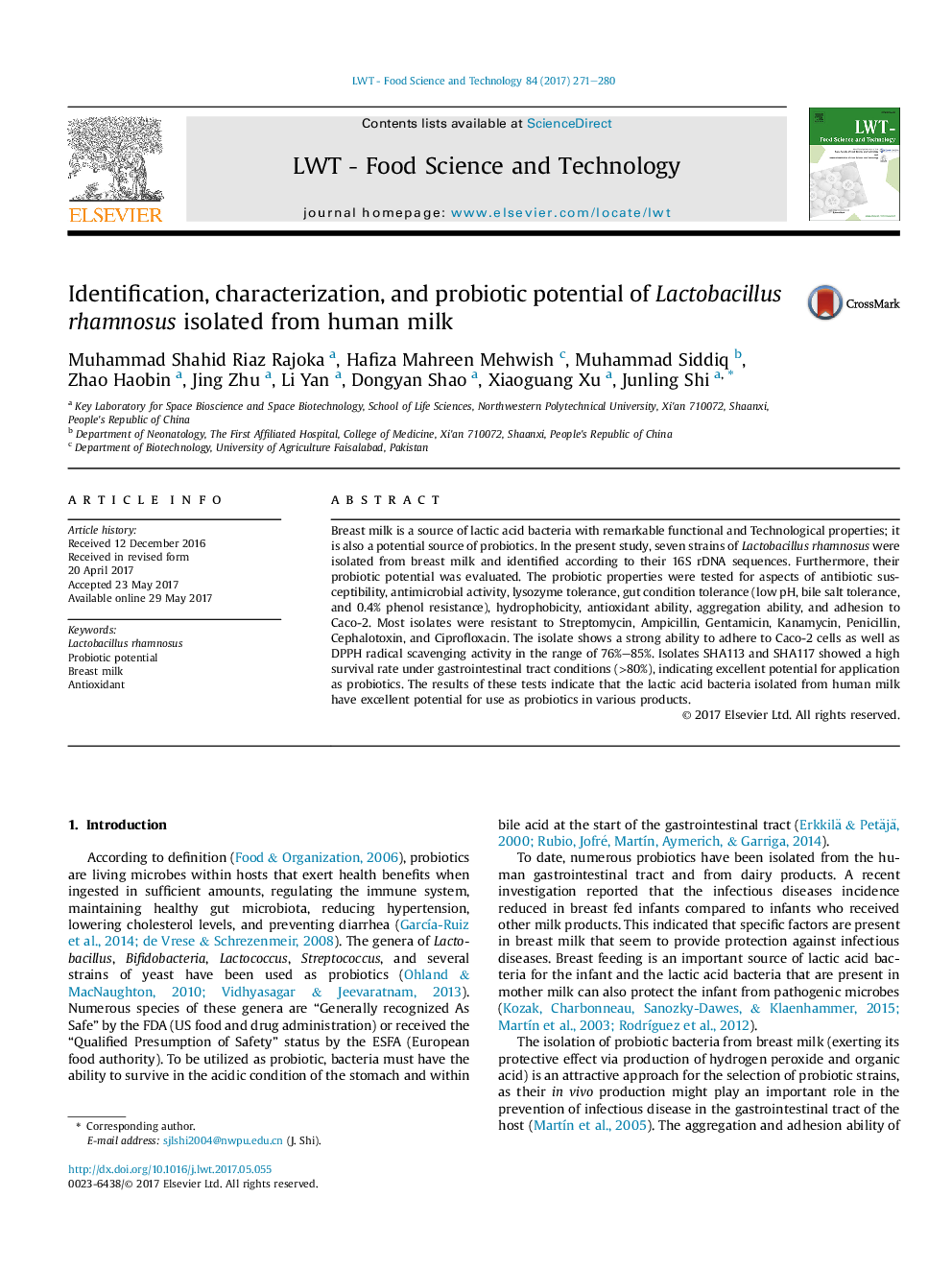| Article ID | Journal | Published Year | Pages | File Type |
|---|---|---|---|---|
| 5768941 | LWT - Food Science and Technology | 2017 | 10 Pages |
â¢Seven Lactobacillus rhamnosus isolates were isolated from breast milk.â¢All selected isolates can survive under gastrointestinal conditions.â¢All isolates had high antimicrobial activity against three pathogenic bacteria.
Breast milk is a source of lactic acid bacteria with remarkable functional and Technological properties; it is also a potential source of probiotics. In the present study, seven strains of Lactobacillus rhamnosus were isolated from breast milk and identified according to their 16S rDNA sequences. Furthermore, their probiotic potential was evaluated. The probiotic properties were tested for aspects of antibiotic susceptibility, antimicrobial activity, lysozyme tolerance, gut condition tolerance (low pH, bile salt tolerance, and 0.4% phenol resistance), hydrophobicity, antioxidant ability, aggregation ability, and adhesion to Caco-2. Most isolates were resistant to Streptomycin, Ampicillin, Gentamicin, Kanamycin, Penicillin, Cephalotoxin, and Ciprofloxacin. The isolate shows a strong ability to adhere to Caco-2Â cells as well as DPPH radical scavenging activity in the range of 76%-85%. Isolates SHA113 and SHA117 showed a high survival rate under gastrointestinal tract conditions (>80%), indicating excellent potential for application as probiotics. The results of these tests indicate that the lactic acid bacteria isolated from human milk have excellent potential for use as probiotics in various products.
